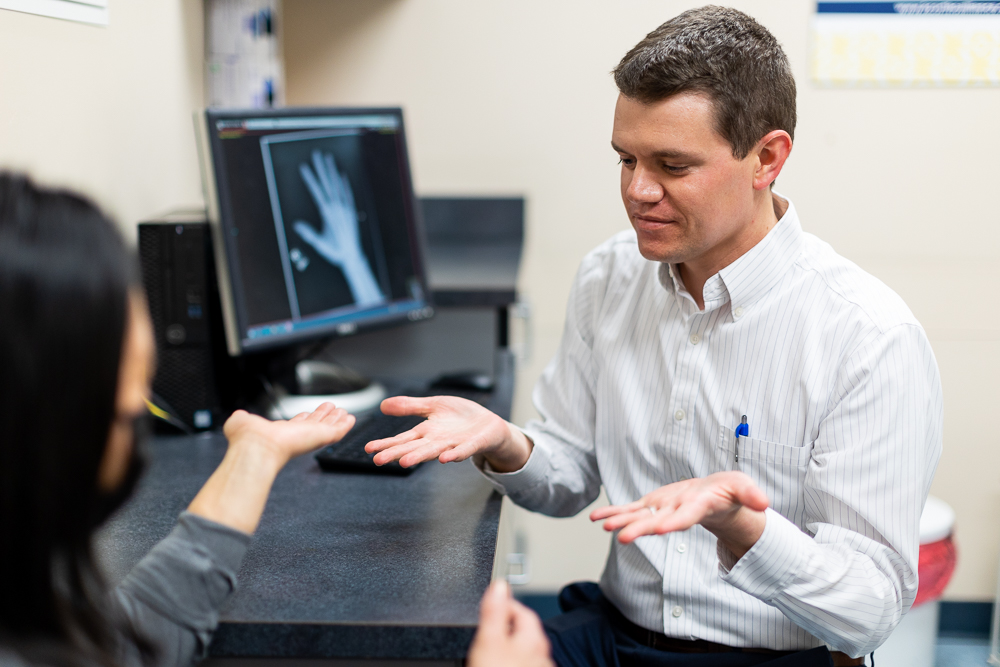As our population ages, an increasingly common orthopedic procedure is total hip replacement surgery. Many patients with hip pain ask me if they should have a hip replacement. My answer? If hip pain interferes with your activities and quality of life, and you can’t do the things you want to do, hip surgery is worthy of consideration regardless of age.
After a total hip replacement, patients have to walk as much as possible and begin physical therapy to strengthen weakened muscles. We work with patients to return them to their previous levels of activity. In the following video, I cover more about total hip replacement, what conditions can lead to total hip replacement, and more:
Patients with other hip conditions may find the following information helpful:
- Hip Pain: What are Femoroacetabular Impingement (FAI) and Labral Tears?
- Hip Pain: What is Avascular Necrosis (Osteonecrosis)?
- What are the treatment options for hip conditions at Dickson-Diveley Orthopaedics?
 About the Author: Scott A. Wingerter, M.D., Ph.D. is a board-certified and fellowship-trained orthopedic surgeon specializing in joint preservation and replacement surgery. His focus is on total joint replacement of the hip and knee, hip resurfacing, partial knee replacement, minimally invasive surgery, and hip arthroscopy.
About the Author: Scott A. Wingerter, M.D., Ph.D. is a board-certified and fellowship-trained orthopedic surgeon specializing in joint preservation and replacement surgery. His focus is on total joint replacement of the hip and knee, hip resurfacing, partial knee replacement, minimally invasive surgery, and hip arthroscopy.
***
The medical information contained in the Dickson-Diveley Orthopaedics website is provided to increase your knowledge and understanding of orthopedic conditions. This information should not be interpreted as a recommendation for a specific medical or surgical treatment plan. As each patient may have specific symptoms or associated problems, the treatment regimen for a specific patient may not be the proper treatment for another.
Gaining knowledge and understanding of a particular problem or condition is the first step in any medical treatment plan. I believe the information presented on our website will be helpful for those individuals experiencing hip diseases, orthopedic injuries, or other related problems. However, this information is not intended to replace the advice of your family physician. You are encouraged to consult with your physician to discuss any course of treatment presented or suggested.


